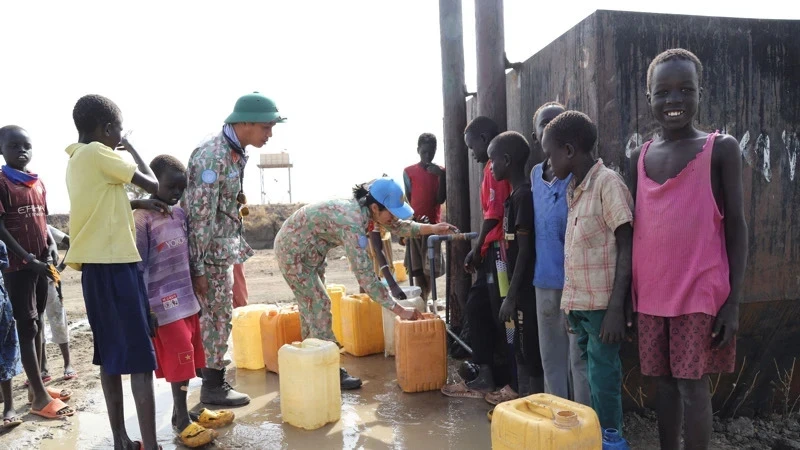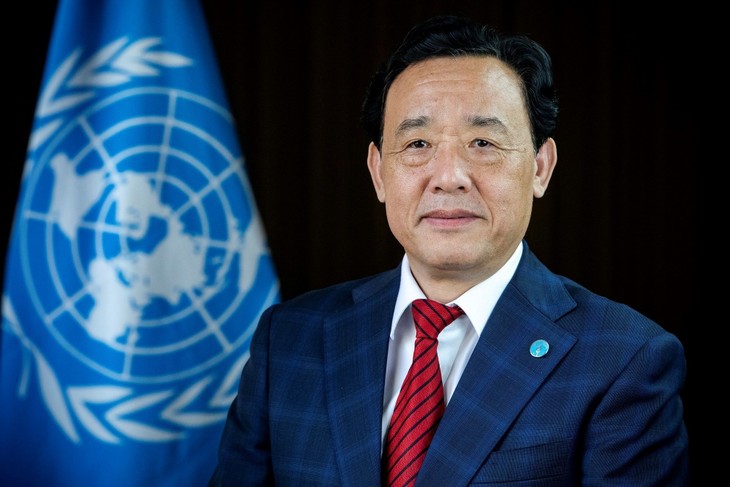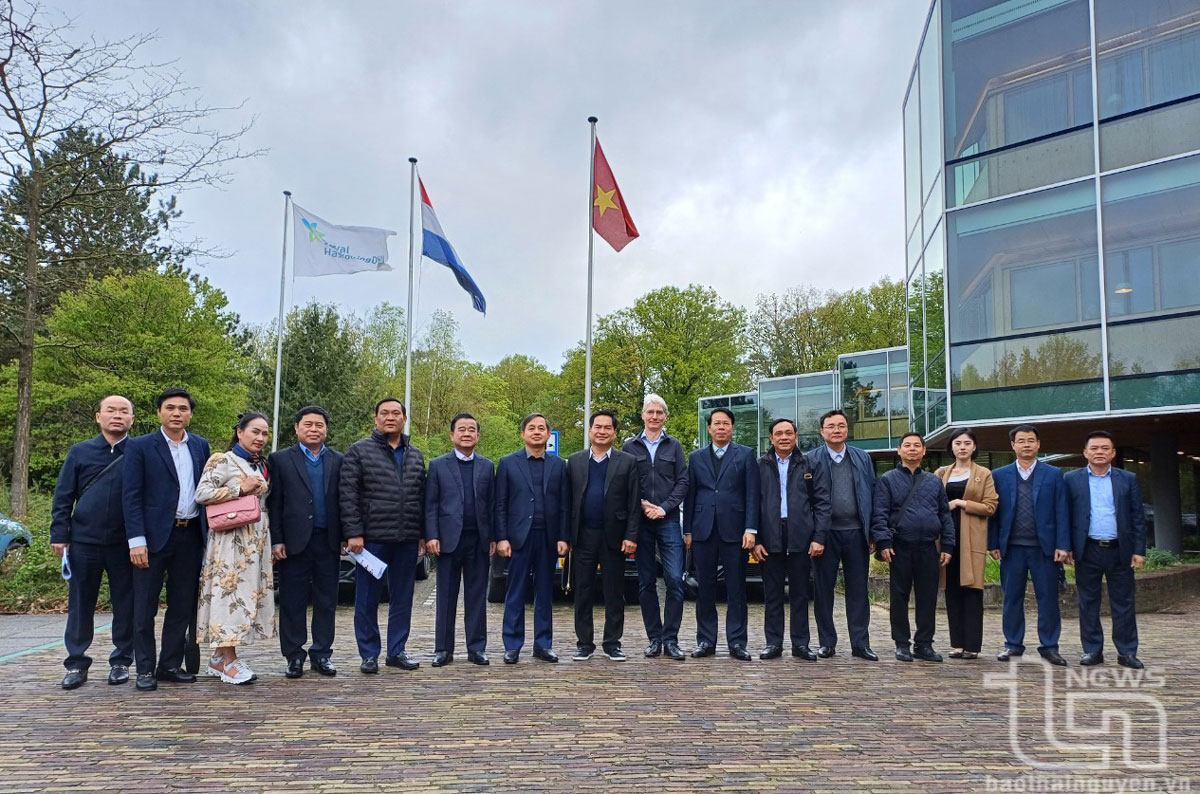Strengthening international cooperation is considered an effort to realise the goal of restoring water resources at the global level. An urgent call on this issue was made by the representative of Indonesia at the third high-level international conference on the International Decade for Action themed “Water for Sustainable Development” held in Dushanbe, Tajikistan.
 |
| Soldiers from the Vietnamese Army Corps of Engineers at the UNISFA Mission instruct Abyei people to get water. (Photo: nhandan.vn) |
During the conference, Indonesian Minister of Public Works and Public Housing Basuki Hadimuljono emphasised that global cooperation is the key to protecting water resources for common prosperity. Basuki said that countries need to meet the United Nations’ Sustainable Development Goals (SDG) standards through cooperative programmes to realise equitable access to clean water and sanitation by 2030.
Access to clean water is a basic human right and everyone in the world has equal access to this resource. Water is a scarce resource, but people are wasting about 35%-40% of available water while more than 30% of drinking water produced does not reach consumers. There are currently 2.1 billion people in the world who do not have clean water to use.
It is forecast that about 3 billion people will face lack of clean water by 2035 and this number will increase to 3.9 billion people by 2050. It means that more than two out of every five people in the world will face a lack of clean water. Polluted and poor-quality water sources are said to be the main cause of death for millions of people each year and are a burden on health care. Meeting adequate drinking water and sanitation targets could save 10% of global healthcare costs.
Lack of access to safe drinking water and basic sanitation and hygiene, along with water scarcity and pollution, is one of the biggest challenges facing the international community today, especially poor and developing countries. Natural disasters related to water resources are increasing. In addition, the impacts of climate change, urbanisation, population growth, drought, and desertification are making it increasingly difficult to manage water resources.
Therefore, the Decade for Action “Water for Sustainable Development” 2018-2028 was launched by the United Nations in 2018, to enhance information sharing on water, protect water resources, raise investment in research on water and increase attention to vulnerable groups in accessing water. The Decade for Action “Water for Sustainable Development” also aims to expand dialogues between countries and international organisations to promote efforts to implement the millennium goals.
Water sources that are not well managed will affect people’s health and farming activities, and push up food prices, thereby risking fueling conflicts and waves of migration. Under the pressure of population growth and economic development, water resources are increasingly being fully exploited and used beyond the recoverable amount. Urbanisation, agriculture, industry and climate change are putting pressure on both the quality and quantity of water resources. Water resource depletion, along with increasing demand for clean water and declining water quality, are posing global challenges. In addition, with about 2 billion tonnes of waste entering water sources every day, people are having to live with polluted water sources around the world.
According to experts, to avoid a deep crisis, governments and people need to reevaluate how to use and allocate water resources in the direction of shifting from expanding supply to limiting demand. Instead of continuing to deplete water sources, we must conserve and adjust demand to match the limited and gradually shrinking supply, and apply all solutions to protect water resources.










Thông tin bạn đọc
Đóng Lưu thông tin